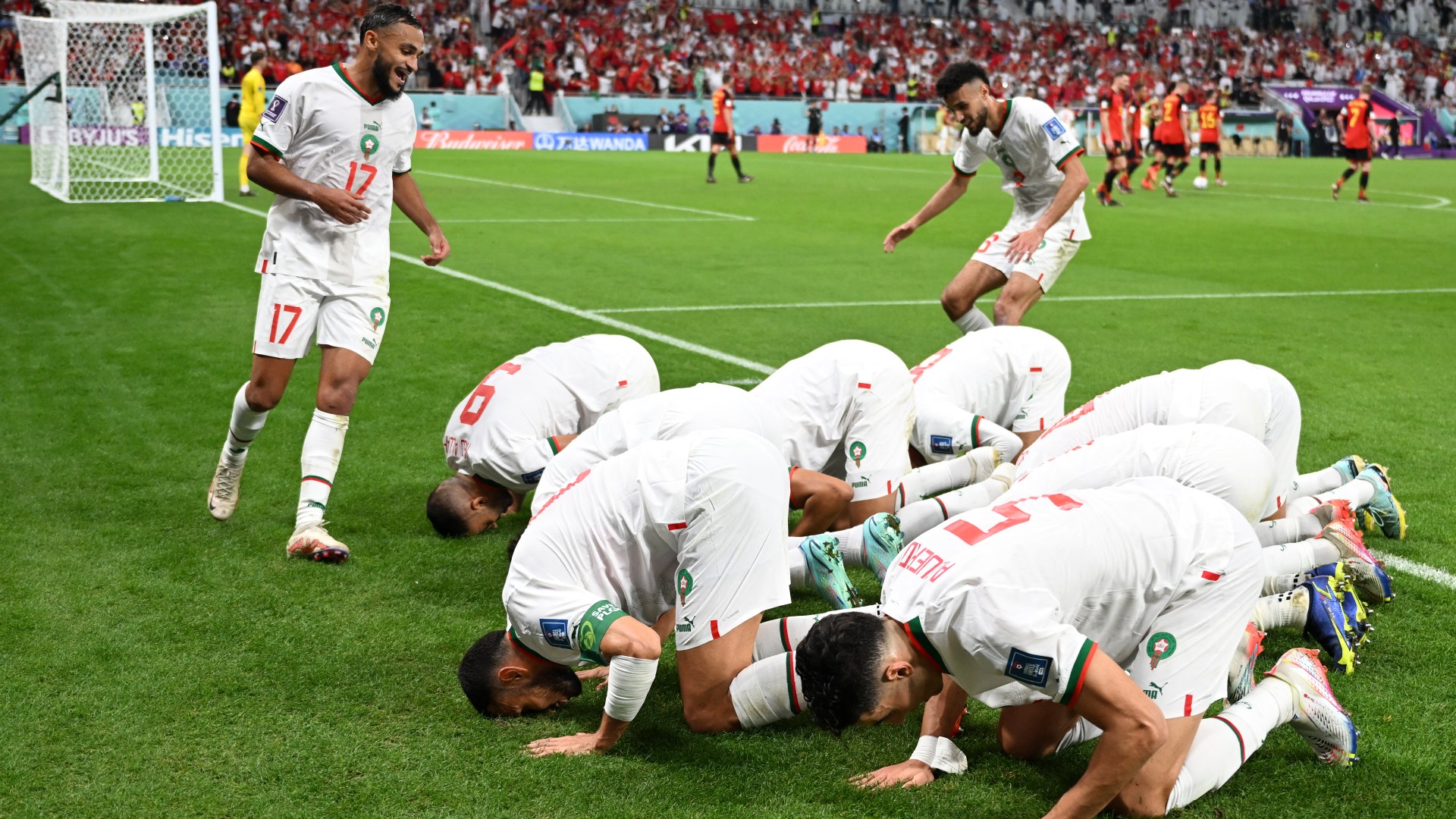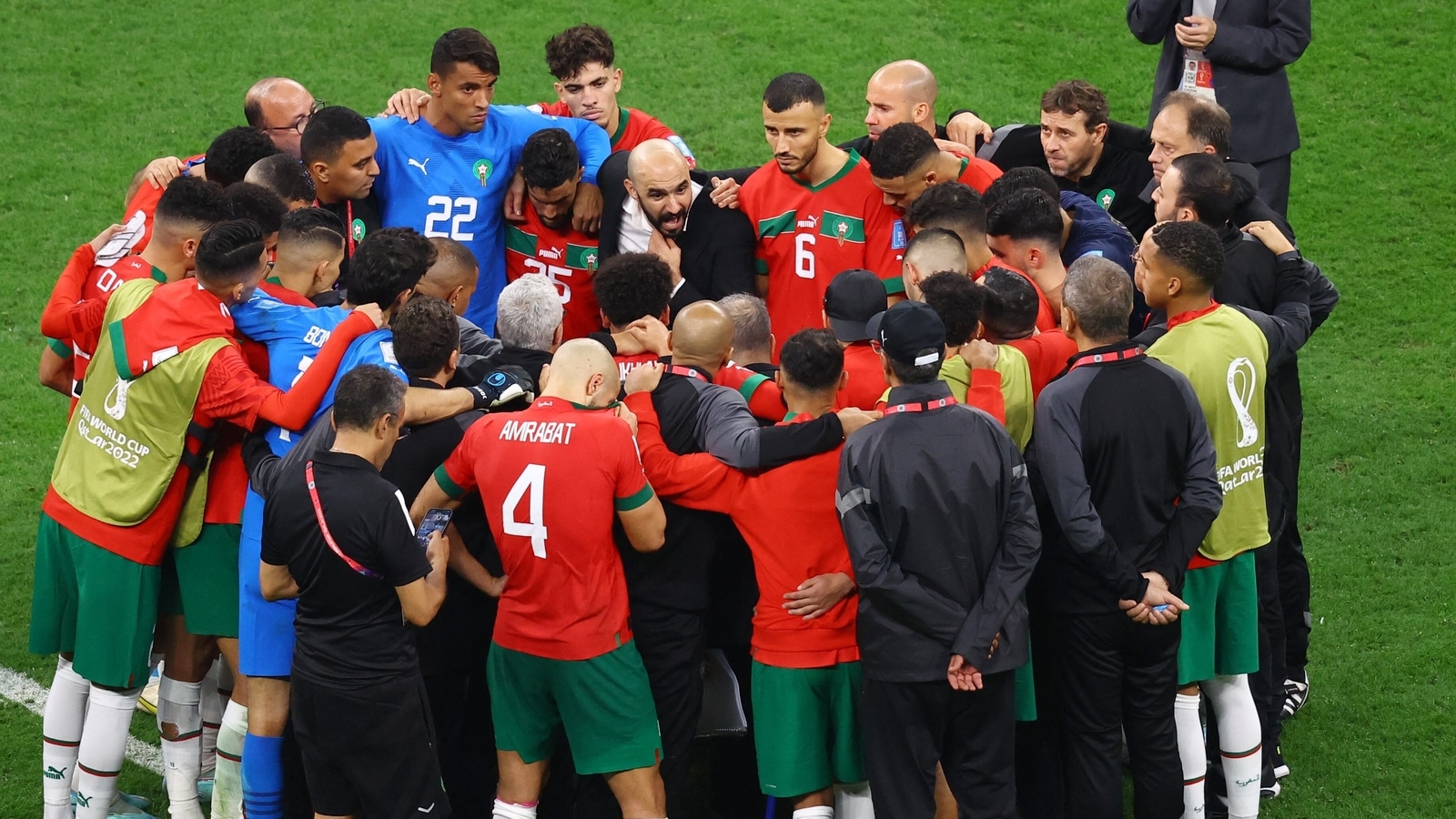“Football Coaching Strategies in Morocco: A Comprehensive Analysis
Related Articles Football Coaching Strategies in Morocco: A Comprehensive Analysis
Football Coaching Strategies in Morocco: A Comprehensive Analysis
Morocco, a North African nation with a rich footballing heritage, has witnessed a significant evolution in its coaching strategies over the past few decades. Driven by a desire to compete at the highest levels of international football, Moroccan coaches have embraced modern techniques, adapted global trends, and developed unique approaches tailored to the local context. This article delves into the intricacies of football coaching strategies in Morocco, examining the historical context, key influences, current trends, challenges, and future prospects.
Historical Context
Football was introduced to Morocco during the French colonial era, and the early coaching approaches were heavily influenced by European styles. The emphasis was on technical skills, tactical discipline, and physical fitness. However, as Morocco gained independence in 1956, there was a growing desire to develop a distinct Moroccan footballing identity.
In the early years, Moroccan coaches often relied on traditional methods, focusing on individual brilliance and flair. The emphasis was on producing technically gifted players who could express themselves on the field. However, as football became increasingly globalized, Moroccan coaches began to recognize the need to adopt more structured and strategic approaches.
Key Influences
Several factors have influenced the development of football coaching strategies in Morocco:
-
European Football: European football, particularly the Spanish and French leagues, has had a significant impact on Moroccan coaching. Many Moroccan coaches have studied or worked in Europe, gaining exposure to the latest coaching techniques and tactical innovations.
-
Global Trends: The globalization of football has led to the dissemination of coaching knowledge and best practices from around the world. Moroccan coaches have embraced modern training methods, performance analysis, and sports science to enhance their coaching effectiveness.
-
Local Context: Moroccan coaches have also recognized the importance of adapting their strategies to the local context. They have taken into account the unique cultural, social, and economic factors that influence football in Morocco.

-
Royal Moroccan Football Federation (FRMF): The FRMF has played a crucial role in promoting the development of football coaching in Morocco. The federation has invested in coach education programs, established national training centers, and organized international workshops to enhance the skills and knowledge of Moroccan coaches.
Current Trends
Several key trends are shaping football coaching strategies in Morocco today:
-
Emphasis on Tactical Flexibility: Modern Moroccan coaches prioritize tactical flexibility, recognizing the need to adapt their strategies to different opponents and match situations. They emphasize the importance of having a well-defined game plan but also being able to make adjustments as needed.
-
Focus on Youth Development: There is a growing emphasis on youth development in Moroccan football. Coaches are investing in grassroots programs, academies, and youth leagues to identify and nurture talented young players. The goal is to create a pipeline of skilled and technically proficient players who can compete at the highest levels.
-
Integration of Sports Science: Moroccan coaches are increasingly integrating sports science into their training programs. They are using data analysis, performance monitoring, and injury prevention strategies to optimize player performance and reduce the risk of injuries.
-
Adoption of Modern Training Methods: Moroccan coaches are adopting modern training methods that emphasize player-centered learning, game-based training, and individual development plans. They are moving away from traditional, authoritarian coaching styles and embracing a more collaborative and empowering approach.
-
Use of Technology: Technology is playing an increasingly important role in Moroccan football coaching. Coaches are using video analysis software, GPS tracking systems, and other technological tools to analyze player performance, track training loads, and make data-driven decisions.
Challenges
Despite the progress made in recent years, Moroccan football coaching still faces several challenges:
-
Lack of Resources: Many Moroccan clubs and academies lack the financial resources to invest in high-quality coaching, training facilities, and equipment. This can limit the development of talented players and hinder the implementation of modern coaching strategies.
-
Inadequate Infrastructure: The infrastructure for football development in Morocco is still inadequate in many areas. There is a shortage of quality training pitches, stadiums, and other facilities, which can make it difficult for coaches to implement their training programs effectively.
-
Resistance to Change: Some Moroccan coaches and administrators are resistant to change and reluctant to adopt new coaching methods and technologies. This can slow down the progress of football development in the country.
-
Brain Drain: Many talented Moroccan players and coaches are lured away by lucrative opportunities in Europe and other parts of the world. This brain drain can deprive Moroccan football of valuable talent and expertise.
-
Corruption and Mismanagement: Corruption and mismanagement have plagued Moroccan football in the past, undermining the integrity of the game and hindering its development. While efforts have been made to address these issues, they remain a challenge.
Future Prospects
Despite the challenges, the future of football coaching in Morocco looks promising. The FRMF is committed to investing in coach education, infrastructure development, and youth development programs. There is a growing pool of talented and ambitious Moroccan coaches who are eager to learn and implement modern coaching strategies.
Morocco’s successful hosting of the 2022 FIFA Club World Cup and its joint bid to host the 2030 FIFA World Cup, alongside Spain and Portugal, have further boosted the country’s footballing ambitions. These events will provide a platform for Moroccan coaches to showcase their skills and knowledge to the world.
Specific Coaching Strategies
-
Hervé Renard’s Pragmatic Approach: Hervé Renard, who coached the Moroccan national team from 2016 to 2019, implemented a pragmatic and results-oriented approach. He focused on building a solid defensive foundation, organizing the team effectively, and exploiting counter-attacking opportunities. Renard’s success in leading Morocco to the 2018 FIFA World Cup and the 2019 Africa Cup of Nations demonstrated the effectiveness of his approach.
-
Walid Regragui’s Tactical Innovation: Walid Regragui, the current coach of the Moroccan national team, has implemented a more innovative and attacking-minded approach. He emphasizes possession-based football, quick transitions, and creative attacking play. Regragui’s success in leading Morocco to the semi-finals of the 2022 FIFA World Cup has showcased the potential of his tactical approach.
-
Youth Coaching Focus: At the youth level, Moroccan coaches are increasingly focusing on developing technically gifted and tactically intelligent players. They are using modern training methods to improve players’ ball control, passing accuracy, decision-making, and spatial awareness.
Conclusion
Football coaching strategies in Morocco have evolved significantly over the past few decades. From the early days of European-influenced approaches to the current era of tactical flexibility, youth development, and sports science integration, Moroccan coaches have demonstrated a willingness to learn, adapt, and innovate. While challenges remain, the future of football coaching in Morocco looks bright. With continued investment in coach education, infrastructure development, and youth development programs, Morocco has the potential to become a major force in African and international football.
The success of the national team at the 2022 FIFA World Cup has inspired a new generation of Moroccan players and coaches. It has also demonstrated the importance of having a clear vision, a well-defined strategy, and a commitment to excellence. As Moroccan football continues to develop, it is essential that coaches continue to embrace modern techniques, adapt global trends, and develop unique approaches that are tailored to the local context. By doing so, Morocco can unlock its full footballing potential and achieve even greater success on the world stage.


